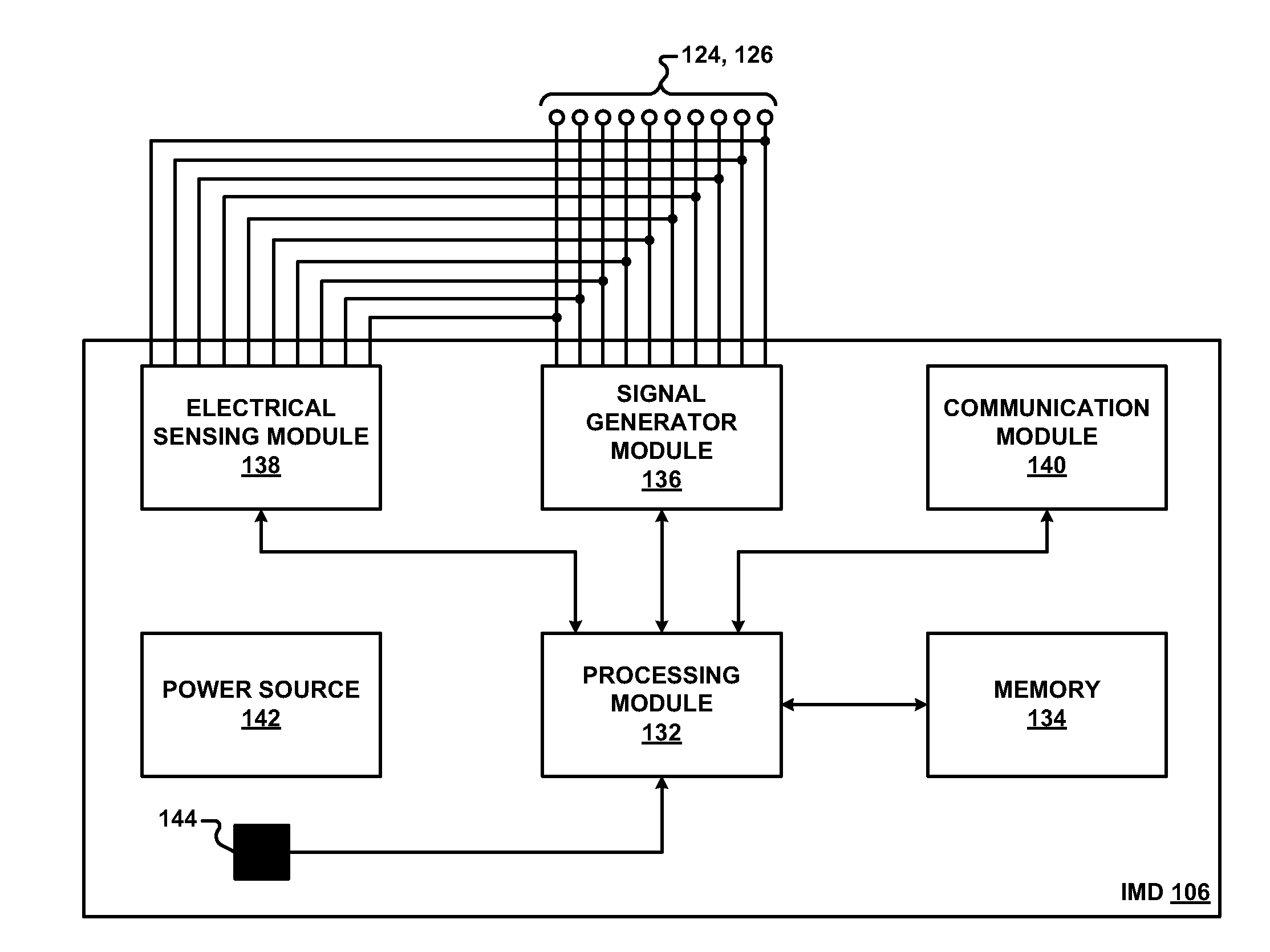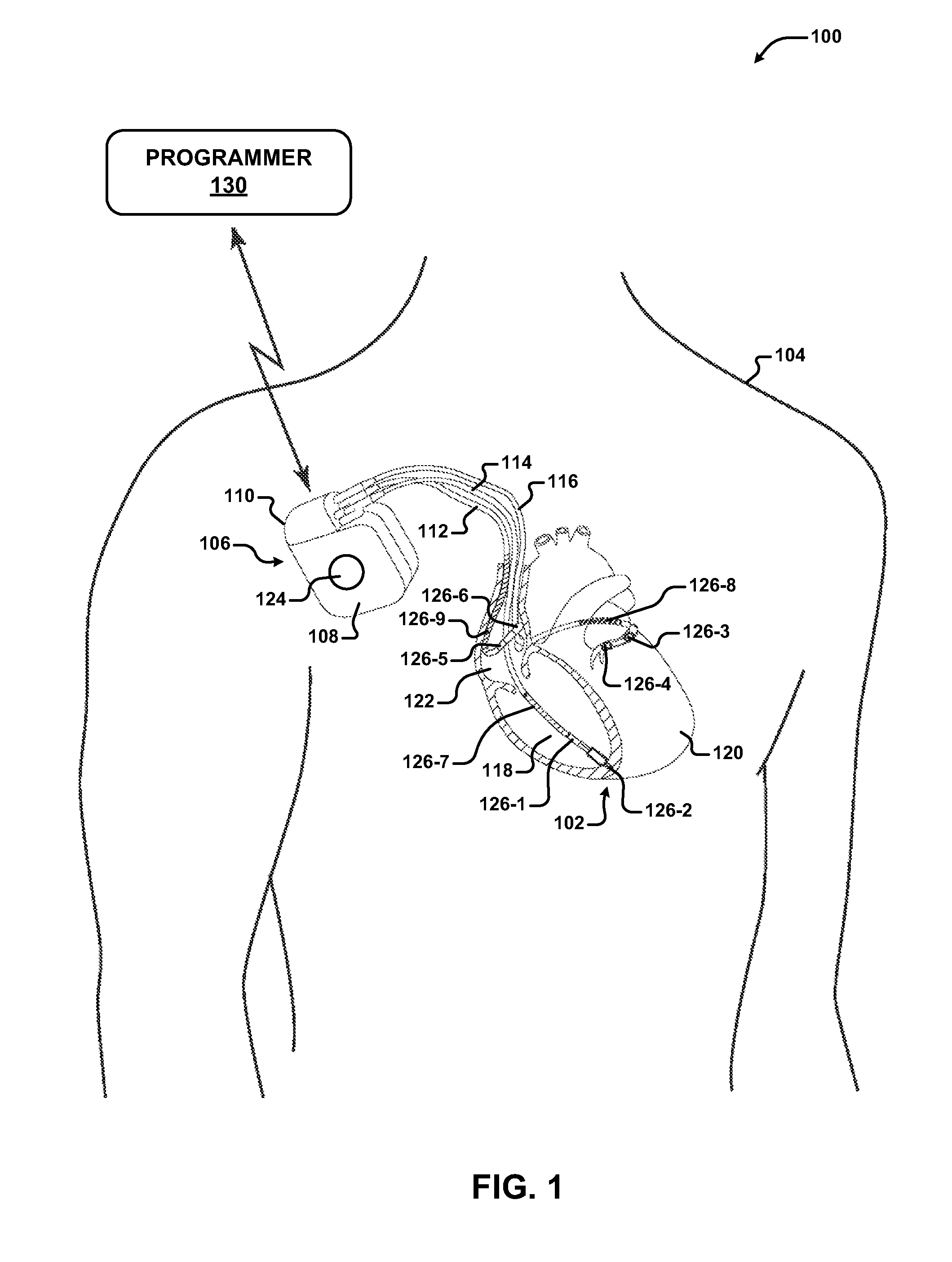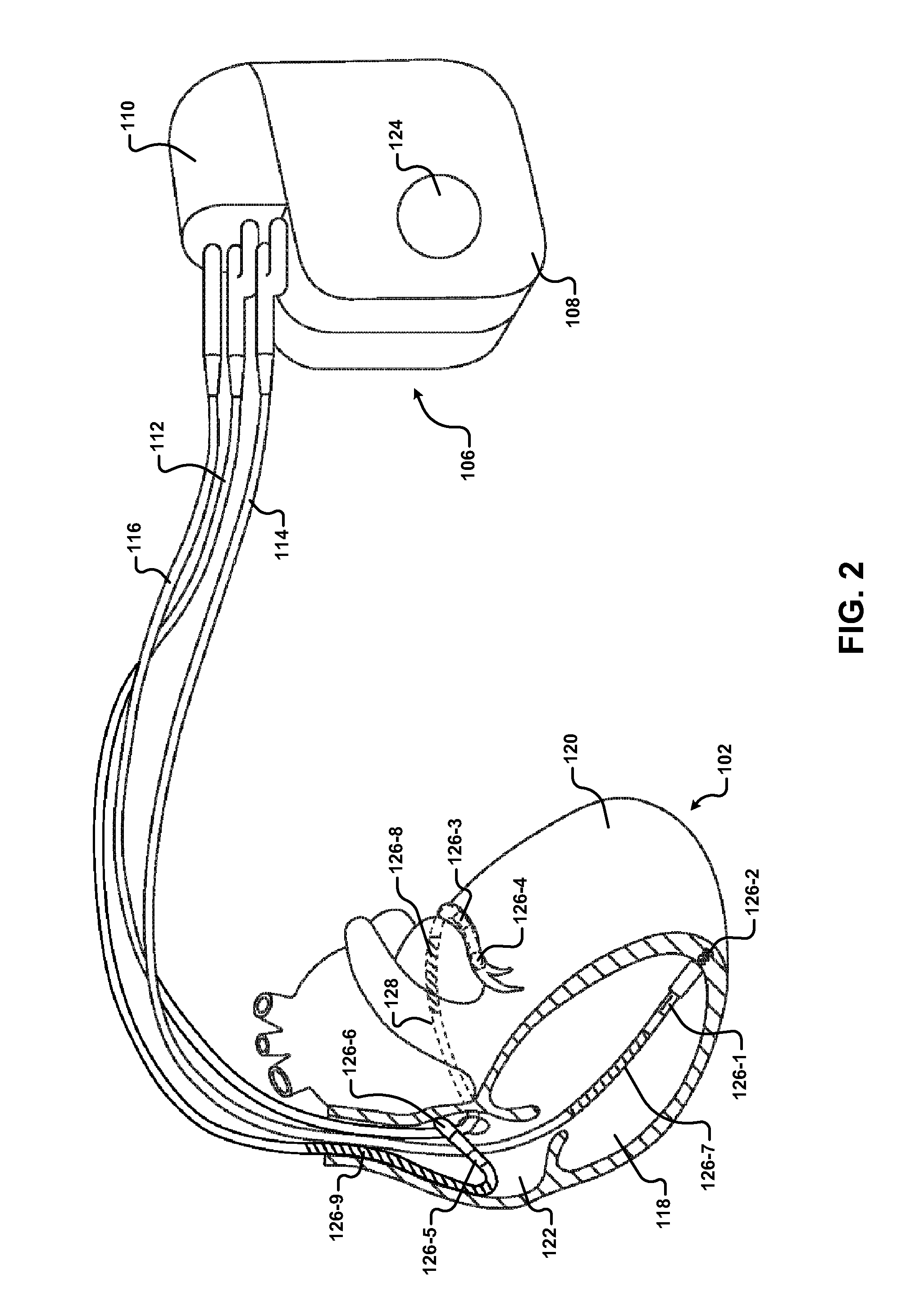Techniques for modifying breathing rate using cardiac pacing
- Summary
- Abstract
- Description
- Claims
- Application Information
AI Technical Summary
Benefits of technology
Problems solved by technology
Method used
Image
Examples
Embodiment Construction
[0025]An IMD, e.g., a pacemaker and / or cardioverter-defibrillator, of the present disclosure may control a breathing rate of a patient by modulating a cardiac pacing rate. For example, the IMD may control the breathing rate of the patient by modulating the cardiac pacing rate according to a set of modified pacing parameters. The breathing rate of the patient may be a number of breathing cycles (i.e., breaths taken by the patient) per unit of time. Each breathing cycle may include a period of time during which the patient inhales (i.e., an inhalation phase) and a period of time during which the patient exhales (i.e., an exhalation phase). The modified pacing parameters may include, but are not limited to, modified pacing rates, a number of cardiac cycles for which the pacing rates will be modified over a period of time or over a specified number of cardiac cycles, and a number of breathing cycles for which pacing rates will be modified over a period of time or over a specified number...
PUM
 Login to View More
Login to View More Abstract
Description
Claims
Application Information
 Login to View More
Login to View More - R&D
- Intellectual Property
- Life Sciences
- Materials
- Tech Scout
- Unparalleled Data Quality
- Higher Quality Content
- 60% Fewer Hallucinations
Browse by: Latest US Patents, China's latest patents, Technical Efficacy Thesaurus, Application Domain, Technology Topic, Popular Technical Reports.
© 2025 PatSnap. All rights reserved.Legal|Privacy policy|Modern Slavery Act Transparency Statement|Sitemap|About US| Contact US: help@patsnap.com



